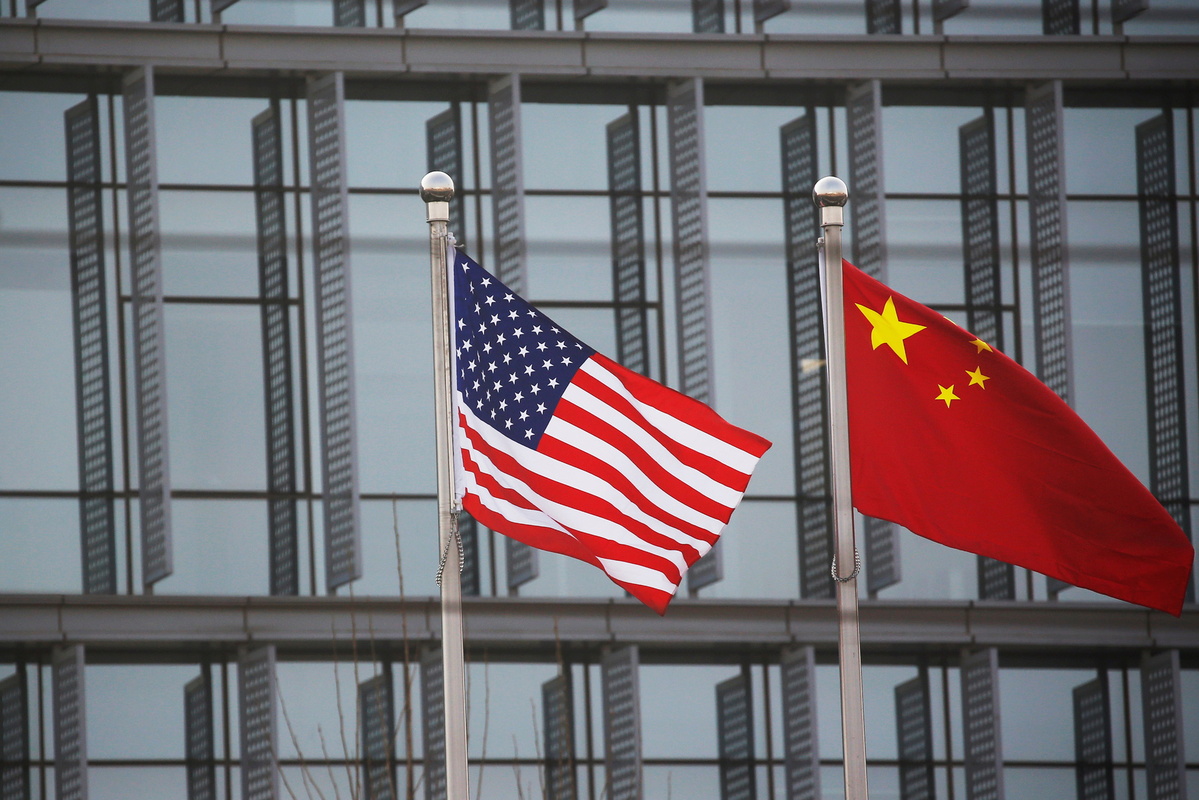
| 双语新闻 Bilingual News | 双语对照阅读 分级系列阅读 智能辅助阅读 在线英语学习 |

| 双语新闻 Bilingual News | 双语对照阅读 分级系列阅读 智能辅助阅读 在线英语学习 |
| [英文] [中文] [双语对照] [双语交替] [] |

| China and the United States should restore mutual trust by reopening consulates that have been closed and work together on global challenges, abandon a zero-sum trade mindset and engage more robustly, says Stephen Roach, former chairman of Morgan Stanley Asia. | |
| To do so will offer a way out of an escalating conflict between the two countries because misunderstandings are fueling false narratives that will exacerbate tensions, said Roach, a senior fellow at the Paul Tsai China Center of Yale Law School. | |
| "In the last five years alone we have gone from a trade war to a tech war, which is increasing daily to the early stages of a new Cold War," Roach said. "So the urgency to address this conflict has never been greater." | |
| Disputes over technology have intensified even as disputes over trade have continued, he said. | |
| Rather than just keeping intact tariffs on imports imposed by the administration of President Donald Trump, the administration of President Joe Biden has been increasingly aggressive, Roach said, going after Chinese technology companies, most recently by adding 36 more companies and institutions to its export blacklist on Dec 15. | |
| More than 1,000 Chinese companies have been put on lists of entities and sanctions. The latest listings follow an announcement in early October of export sanctions on Chinese purchases of US-made advanced computing and semiconductor products, with the intent of strangling Chinese advanced technologies. | |
| "It was good news that the two presidents met in Bali on Nov 14 for over three hours," Roach said. "There have been some diplomatic follow-through efforts based on that, but in my opinion those (efforts) are more than offset by the increased tensions in the technology arena." | |
| In his book Accidental Conflict: America, China, and the Clash of False Narratives published last month, Roach sets out a three-pronged strategy for resolving conflict. | |
| One of the popular narratives on the US side is to blame China for its massive trade deficit, which largely prompted the Trump administration to launch a trade war with China, he says. | |
| "America has really no one to blame for its trade deficit other than itself, because we save too little, and when you don't save and you want to grow, you have to import surplus savings from abroad, and you run balance of payments and multilateral trade deficits." | |
| "The whole premise of Accidental Conflict is, as this conflict escalates quickly and dramatically, the false narratives are like gasoline, high octane fuel, that could easily be ignited by a spark," he told China Daily. | |
 | |
| The first step to resolving conflict is to restore trust, to begin dealing jointly with critical issues of mutual and global importance, starting with "low-hanging fruit" such as reopening the two consulates the two countries closed in 2020, restarting student exchange programs and relaxing visa restrictions, Roach said. | |
| In an online discussion organized by the Carter Center and the George H. W. Bush Foundation for US-China Relations on Sept 22 last year, China's Ambassador to the US Qin Gang said that facing the abrupt closure of the consulate general in Houston, the Chinese side had no choice but to reciprocate and close the US consulate general in Chengdu. | |
| "Let the person who tied the bell on the tiger take it off," Qin said when asked if the US and China had discussed reopening the consulates in Chengdu and Houston. | |
| "This is something unilaterally started by the US side, and the US side must act first to resolve it." | |
| Shared responsibility | |
| Roach said that after dealing with the easy issues, the two sides can then proceed to work together on tougher global issues for which they have shared responsibility, such as climate change, global health and cybersecurity. | |
| "But if they remain conflicted, as they are now, and the conflict gets worse, then their ability to tackle these enormous and important global issues will be severely constrained." | |
| His second proposal is to move away from the bilateral zero-sum trade framework that features tariffs, to end that, and focus more on pro-growth, market-opening initiatives, such as a bilateral investment treaty that focuses on reducing investment barriers. | |
| In the third part of his strategy for resolving conflict, Roach proposes a new approach to engage China, different from the part-time approach that provides support to summits or the once or twice a year strategic and economic dialogue. | |
| "My strong view is that we need full-time engagement between senior Chinese and American professionals and diplomats, dealing 24/7, around the clock with all aspects of the relationship," he said of his proposal of establishing a US-China secretariat as a new architecture of engagement. | |
Roach said that the feasibility of the fresh approach is very low, given the political environment, but he would push hard for it because the world's most important bilateral relationship is in a danger zone.| | |
OK阅读网 版权所有(C)2017 | 联系我们